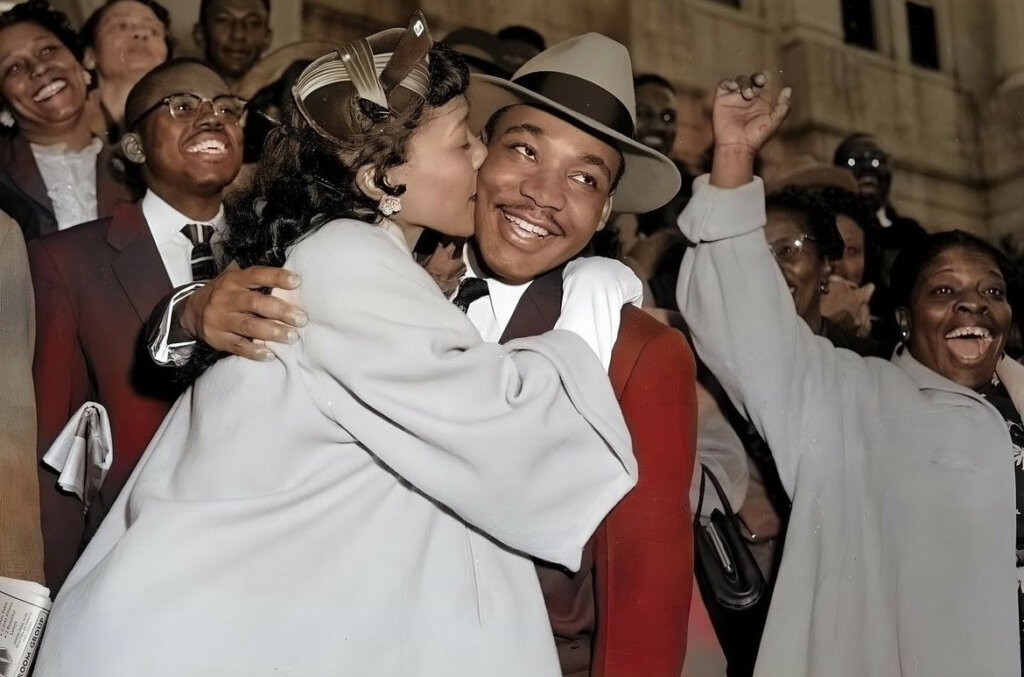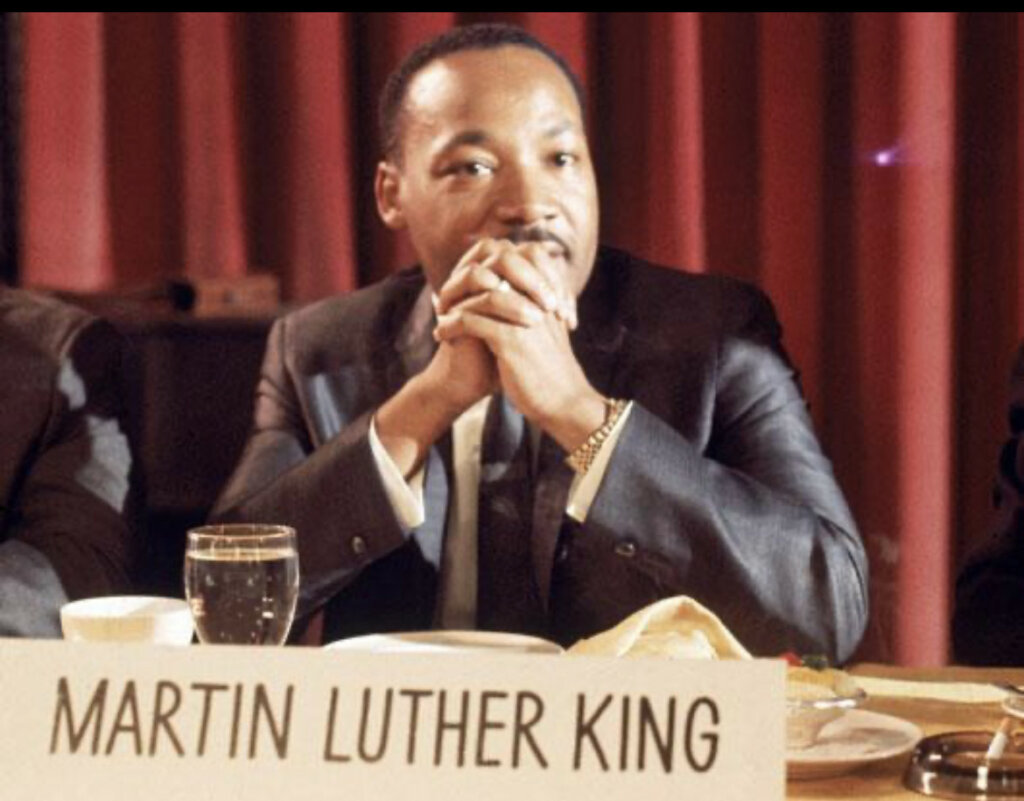Dr. King and the BWS Star Code
Do you know we learn from Dr. Martin Luther King, Jr. ‘s legacy throughout the year at Berkshire Waldorf School?
Not just this month but every day, our unique teaching tool, the BWS Star Code, is a visual reminder posted throughout the school of our community values based on Dr. King’s work, and a practical teaching tool for social and character education.

The BWS Star Code: Our Agreement
The BWS Diversity and Inclusion Statement refers to our BWS Star Code as a focal point. It’s our “North star,” to help guide faculty, administrators, trustees, caregivers and students in the active practice of inclusion.
Developed in 2009 by students, teachers, and school psychologist Dr. Steve Hoff, the BWS Star Code visualizes the values our school community agrees to uphold. Since Waldorf Education is not just grounded in child development, but also a social education, the BWS Star Code is posted throughout the school, to remind us all how to work together with respect and appreciation, not only in classrooms, but on the playground, on school buses, at after school activities and sporting events, and with each other outside of school.
The BWS Star Code was presented to the school community in 2009, to honor Dr. King’s Day and commemorate President Barack Obama’s inauguration. Faculty member Ann Sagarin weaved the values represented by these two individuals into the presentation of the BWS Star Code, acknowledging that the values we practice in our classrooms every day have been passed down to us through the generations.
Grade School teachers use the BWS Star Code in developmentally appropriate ways, including role playing, mixed age group projects (especially revisited each year in honor of Dr. King’s Day) and lively class discussions, to address such topics as teasing and criticizing, peer pressure, Internet safety and healthy human sexuality and identity development. One prescient Middle School teacher reminded her students, working together through the Star Code in class, to remember to be kind to themselves.

Growth Mindset
BWS teachers and administrators are working on two group reading projects this year, to re-enliven our commitment to anti-racism and social justice, as we learn and practice Dr. King’s principles throughout the year.
Carol Dweck’s book Mindset: The New Psychology of Success uses research to help teach that “with the right mindset, you can motivate those you lead, teach, and love—to transform their lives and your own.”
At the heart of what makes the “growth mindset” so winsome, Dweck found, is that it creates a passion for learning rather than a hunger for approval. Its hallmark is the conviction that human qualities like intelligence and creativity, and even relational capacities like love and friendship, can be cultivated through effort and deliberate practice.
from “Fixed Vs. Growth: The Two Basic Mindsets That Shape Our Live,” by Maria Popova, Marginalian
In My Grandmother’s Hands, Resmaa Menakem posits that biases are not just in the mind, but are stored in the physical body and need to be deeply felt to be healed, so we can grow beyond racism. The book offers a step-by-step healing process that readers can take into their own hands, based on the latest neuroscience and somatic healing methods.
It’s encouraging to understand that we can use the Waldorf way of learning with head, hands and heart to learn and grow at any age, and that by practicing the growth mindset, change becomes about lifelong learning and growth, not fear or failure.

Further Resources:
Where Do We Go From Here: Chaos or Community? by Martin Luther King, Jr.
Michael Harriot’s Black AF History.
Read more of Dr. King’s words from parent Lev Natan’s recent post at Alliance for a Viable Future.
Honoring Dr. King
To honor Dr. Martin Luther King, Jr. ‘s birth and his tremendous contributions to humanity, here are some resources to re-enliven our commitment to anti-racism and social justice as parents, teachers and community members.

We encourage you to join us in observing Dr. King Day as more than a single day of remembrance, and to carry his principles with you throughout the year. Keeping Dr. King (who might still be alive today if his life hadn’t been taken so soon, when he was 39) a relevant figure and influence in our everyday lives, prevents him from fading into the black and white background of history with a single well-known speech.
Honoring Dr. King at BWS
One way we keep Dr. King’s legacy alive in our school community is with the BWS STAR Code. Unique to our school, the STAR Code was created based on Dr. King’s work by BWS teachers and students, you’ll find it prominently displayed throughout the school. The five points of the star reflect our shared values and guide our behavior and collaboration across the school, from the classroom to the Board room. Teachers and administrators practice these values with our students from Early Childhood through Eighth Grade. They use this visual reminder to work through social and behavioral challenges, or proactively, in social-emotional talking circles or schoolwide assemblies. We encourage parents and caregivers to post and use the same teaching tool at home.

Learning from Dr. King at Home
We hope you’ll join us in reading Dr. King’s last book, Where Do We Go From Here? and the powerful Letter From a Birmingham Jail. Visit The King Center (founded by Coretta Scott King) for a schedule of virtual nonviolence training and other information on making a difference in King’s name. You can also virtually explore the Martin Luther King Jr. Research Institute at Stanford, which has a wealth of archives of Dr. King’s speeches, work and life.
Sharing Dr. King’s Legacy with Little Ones
For your little ones, we suggest keeping up with The Conscious Kid. Early Childhood Teachers at our school and at WECAN (the Waldorf Early Childhood Association of North America) use it frequently as a resource that informs both teaching and parenting.
We have many books about Dr. King’s life and work, appropriate for all ages, available to check out in our school library. And click here for children’s literature resources, including books by Black authors and books addressing conversations on race. (There are preschool-appropriate books on these lists; you will see age range listed when you click on each book.)

Berkshire Waldorf School teachers strive to keep Dr. King in their own consciousness, both in their daily work and in the way they live. As they teach your children and raise their own, teachers remember Dr. King’s selflessness, his love for his family, his own children, his joy, his belief in change and his persistence.
We hope that our dear families in the BWS learning community are inspired to do the same. Peace on Reverend Dr. King’s Day.







